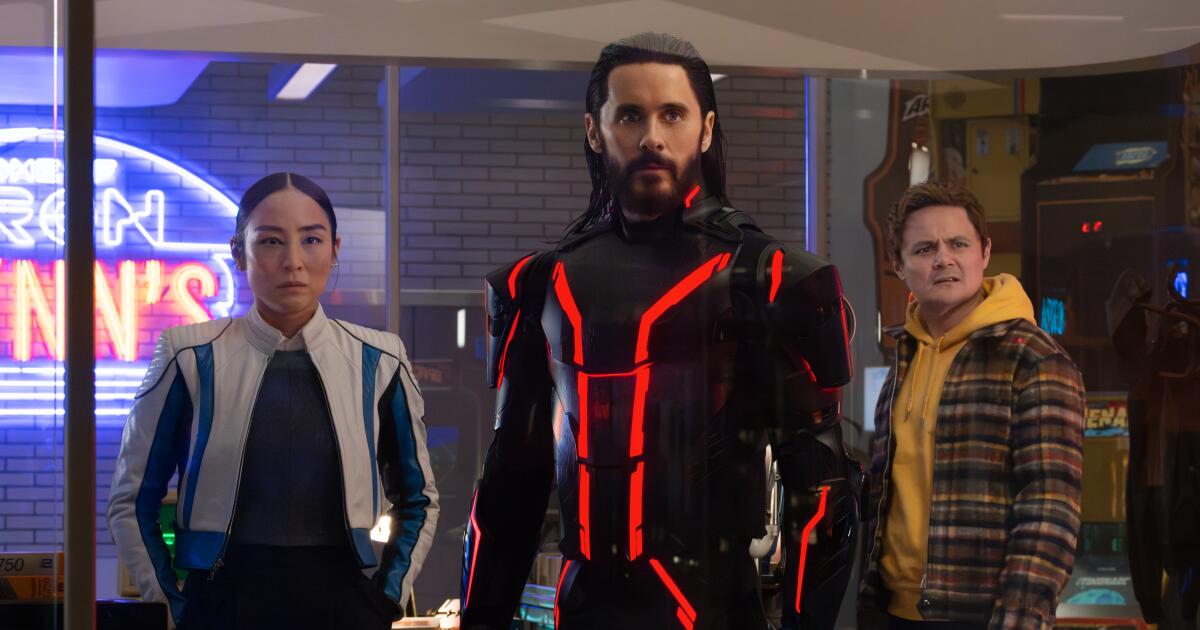UPDATE: The highly anticipated film ‘Tron: Ares’ just premiered, sparking immediate discussions about its themes of artificial intelligence and human impact. Released on October 15, 2023, the film explores the chaotic intersection of the digital world and reality, with AI super-soldiers wreaking havoc in human cities.
Directed by Joachim Rønning, known for his work on the “Pirates of the Caribbean” franchise, ‘Tron: Ares’ shifts the narrative focus from the iconic Flynn characters to a fierce battle between rival tech companies. The film features Greta Lee as Eve Kim, who leads the Flynn legacy company, ENCOM, while Evan Peters plays the ambitious Julian Dillinger of Dillinger Systems.
As Eve searches for a significant message from her late sister, a tech optimist, Julian is busy developing digital combatants with a mere lifespan of 29 minutes. The stakes heighten when Eve discovers a revolutionary “permanence code,” prompting Julian to dispatch his elite soldiers, Ares, played by Jared Leto, and Athena, played by Jodie Turner-Smith, to retrieve it by any means necessary.
While the film’s aesthetic is a nod to its predecessors, presenting a vibrant and edgy visual style accentuated by a score from Nine Inch Nails, the storytelling has come under fire. Critics note that despite attempting to tackle complex themes, including the ethical implications of AI, the narrative is overly simplistic.
In a critical twist, the film references Mary Shelley’s iconic work, “Frankenstein,”strong> suggesting a cautionary tale about the consequences of creating sentient beings. Ares’s character begins to question his existence and purpose, igniting discussions about AI’s potential benevolence versus its destructive capabilities.
“What if its major malfunction is benevolence?” questions Eve during a televised interview, emphasizing the film’s exploration of empathy in AI. However, the script has been criticized for lacking depth, leaving viewers yearning for more subtlety and nuance.
As audiences flock to theaters, the film’s reception remains mixed, with some praising its visual flair while others lament its narrative shortcomings. The urgency of the film’s themes resonates with contemporary discussions about the role of technology in society, making it a relevant topic for discourse.
What’s next? Viewers and critics will undoubtedly continue to dissect the implications of ‘Tron: Ares’ in the coming days. As the film settles into the cultural landscape, its exploration of AI and humanity will likely spark further debate and analyses.
Stay tuned for more updates as the conversation evolves surrounding this latest chapter in the Tron saga.








































































